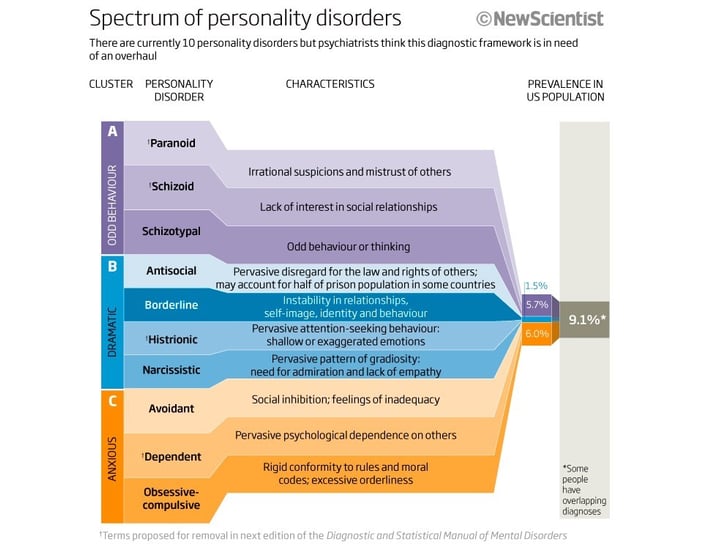Scenario: There's a church business meeting tonight and everyone is dreading it. No, not because it's a business meeting. Instead, because of one man who is sure to be there. He's a faithful attender each Sunday, helps out around with grounds keeping, and is a regular giver. Sounds like a great person to be around--except he's not. This man is very negative, skeptical, and contentious. Whenever there's a question of how to use church funds, he comes armed for a battle. But it's not just money matters that get to him. He's got a reputation of tangling with anyone who doesn't see things his way--in Bible studies, at home, at the grocery store, and even in his marriage. He has a recognizable pattern of skepticism and contention. People who have known him for years agree: "that's just the way he is."
Despite all the exhortations in Scripture to love one another, he's stuck in an inflexible way of viewing others and the world around him. No matter how many sermons on the fruit of the Spirit he endures, the message never gets through.
So what do you--as a pastor, church leader, or fellow Christian do? Are you relegated to enduring his attitudes and ornery-ness, or merely shrugging off his negativity? If you confront him you are guaranteed to get the bull and the horns. But an outstanding question lingers: how can he claim to be following Jesus but have an un-Christlike reputation? What's going on here?
I'm not the person to tell you what to do, but I can introduce something that might be helpful: understanding personality disorders.
What are personality disorders?
There is a technical definition, but let's keep it simple. In short, personality disorders describe a negative perception of self and others that dramatically impacts personal relationships. People with personality disorders often have a hard time regulating their emotions and interacting with others in a healthy way. This creates problems in social settings--like church, work, school, etc.
Clinically speaking, there are ten different types of personality disorders. The chart below provides a brief overview.
While there are many diagnoses, there are a few common denominators that tie them together. People with personality disorder are more likely to have a poor self-image, tend to view others in an unhealthy way, have difficulty regulating their emotions, and can be impulsive (actions/words). This results in difficulty establishing and maintaining healthy relationships. Some are able to manage these symptoms better than others, but they are a part of their struggle nonetheless.
Why do people develop personality disorders?
Researchers and doctors agree that most personality disorders don't have a biological cause. In other words, there is little evidence of a genetic link. Instead, the causes are psychological, family disfunction, and childhood mistreatment. For instance, individuals with personality disorders report higher levels of childhood stress (e.g. poverty, exposure to domestic violence, and parental rejection) and abuse (physical, emotional, sexual). Being raised in these environments contributes to a high amount of trauma and adult-sized stress for a young mind. They are more likely to learn unhealthy relationship traits from the adults in their lives. At the same time, they are more likely to develop negative views of themselves and others. Personality disorders develop from childhood as they experience and even suffer through poor relationships with those around them.
The overwhelming preferred treatment for personality disorder is either Cognitive Behavioral Therapy (CBT) or Dialectical Behavioral Therapy (DBT). Both are types of therapy that aim to help people change their thoughts and behaviors. CBT focuses on changing negative thought patterns and behaviors, while DBT focuses on helping people manage their emotions.
So, how does this impact churches?
Counselor Tim Lane has written, “Statistics reveal that about 10% of the population fit the various categories of personality disorders. That means that leaders need to be exposed to and aware of these various forms of struggle. It is necessary to be aware of these issues because, unfortunately, it is not uncommon for these individuals to do great harm in churches, either as leaders or attenders.”
Think about it this way, a person struggling with:
Paranoid Personality Disorder (PD) will be untrusting, petty, and skeptical of church leadership.
Schizoid PD may avoid others, rarely show emotions and refuse to participate in social gatherings.
Schizotypal PD may believe unrelated events pertain to them, experience mild hallucinations, and be unable to form close relationships.
Antisocial PD may be aggressive at times, deceitful, impulsive, and object to church leadership on many points.
Borderline PD will exhibit a great fear of abandonment, mood swings, and rush into unstable relationships.
Histrionic PD will lean towards being overly dramatic and be attention-seeking.
Narcissistic PD will be boastful, pretentious, and seek attention by bragging about their accomplishments.
Avoidant PD may have a fear of being ridiculed or disliked, be overly sensitive to criticism, and lack decisiveness.
Dependent PD will be very clingy, submissive, and unable to make small decisions.
Obsessive-compulsive PD will be obsessed with orderliness, control, and doing everything themselves because they don't trust others to "do it right."
Now sift this through the grid of relationships in your church. For a minute, remove the labels and diagnostic language and ask yourself: how many times has there been conflict in my church or interpersonal struggles involving someone with these symptoms? These diagnoses aren't giving someone an excuse to continue their unhealthy behavior. Instead, diagnoses merely recognize patterns of thought and behavior, and bring symptoms into the light of understanding so that the unhealthy behavior doesn't continue.
No one but trained mental health professionals should ever attempt to diagnose a mental illness, but church leaders would benefit greatly from understanding the basics of personality disorders because they provide insight into human behavior. It enables you to peel back layers in order to see the human being behind these fears.

